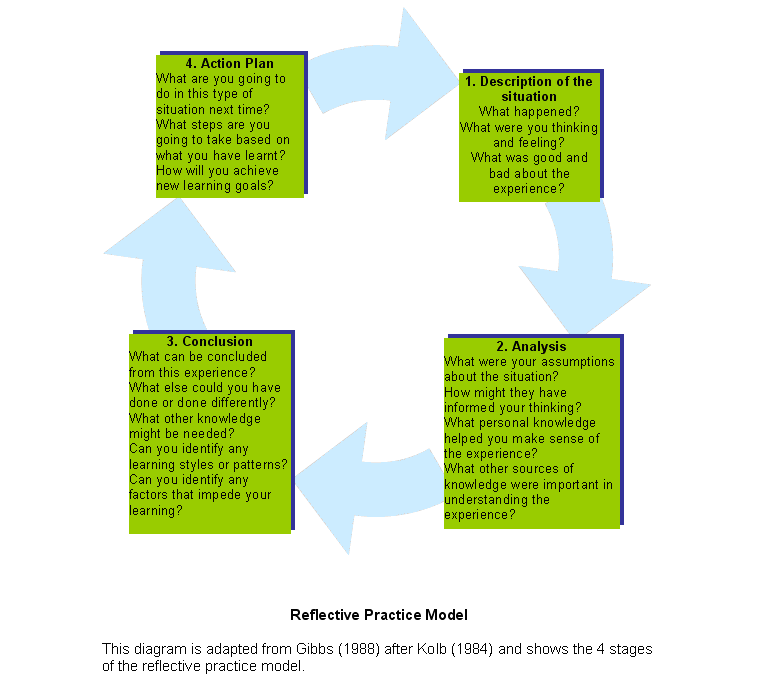What is critical reflective practice
Critical reflection is described as as unearthing the thinking and behaviour that gives meaning purpose and direction to actions (Brookfield 1995).
This critical reflective practice aims to develop 3 main reflective skills:
-
Reflection-on-action
-
Critical analysis
-
Reflection-for-action (i.e.acting thoughtfully/mindfully and differently as a result of this process)
The introductory online module on reflective practice incorporated a 4 staged model of the reflective process (see below). In this module the cycle can be applied as a basis for critical reflection but will require more than adoption of the cycle approach to reflection.
Being involved in critical reflective practice means that you will repeat the process outlined in the diagram possibly several times, developing further insight and enquiring further into insights of your own actions and responses. In this way, critical reflective practice incorporates both reflecting in action and also reflecting on action. (Schon, 1983).
Critical reflective practice also draws heavily on the skills of critical thinking. Thorpe (2004) describes critical reflectors as being ‘individuals [who] are active learners who seek out the why of things, who acknowledge a current set of beliefs and values behind their actions, who critically review assumptions, presuppositions from prior learning, and who readily change their position'.
Being able to ‘step back’ and reflect critically on your actions will help you to make decisions based on your own ethics and values.
Next: Reflection-on-action
